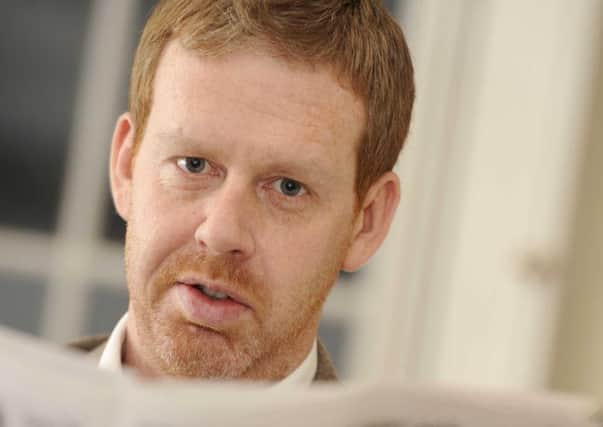Nick Freer: Business can learn a lesson or two from Unicef


It speaks volumes to Edinburgh’s reputation in the field of big data and data science, the study of systems that extract and structure knowledge from data, an upwards trajectory that has the city’s School of Informatics at its vanguard.
Unicef touches the lives of around one-third of all children on the planet, primarily young people at the mercy of war, famine and drought but also those in more geopolitically stable regions. So, in Scotland, Unicef would look to form data-driven partnerships with our government agencies to address issues like childhood obesity.
Advertisement
Hide AdAdvertisement
Hide AdThe body established by the United Nations 70 years’ ago to protect the rights of children in most need, has some ingenious ways of acquiring data. It has, for example, a partnership with Airbus whereby the aerospace giant captures imagery of mass movements of displaced people fleeing conflict and natural disasters allowing Unicef to provide better support on the ground.
We have given the Unicef team a bit of early stage advice and hope to help them tell what is a great story in the making for Edinburgh and Scotland. The School of Informatics, The Data Lab – the Scottish Innovation Centre that co-organised last week’s DataFest event in Edinburgh – and indigenous technology companies like Brainnwave have been working with Unicef to plot the way ahead.
In lots of ways, it can be a beacon for Scotland’s commitment to social enterprise, one that would beam out of our capital into every corner of the world – perhaps it is no exaggeration to say that it could even herald a new Scottish Enlightenment, one powered by data and technology.
Unicef relies on funding from corporates, as well as from governments and individuals, so Scotland plc has a real opportunity here to play a part in supporting the data’s hub’s development. While many a commentator would agree that our largest companies, particularly those in the financial services sector, could be doing more to support our early stage technology companies, perhaps the behemoth brand for good that is Unicef will be enough of a call to action to loosen pursestrings and really help to put Scotland on the map in international terms.
Social enterprise has become a dynamic and exciting force, loosening the erstwhile shackles of “worthiness”, to the extent that many a millennial would now rather work for what was once described as a “charity” than a shiny new startup in San Francisco. In our own country, Josh Littlejohn and the Social Bite phenomenon with its lofty aim to eradicate homelessness in Scotland has electrified our social enterprise scene. Last December, in the comfortable confines of Charlotte Square on a relatively mild winter night, hundreds of CEOs and captains of industry slept out under the stars and raised over half a million pounds to build a village for the homeless.
I met the guys at Social Investment Scotland recently, a team who are an important building block in our social enterprise ecosystem. Chaired by Nick Kuenssberg, they have plans to launch a venture fund to invest in the kind of organisations they are currently only able to provide loan financing to. The fund comes at a time when traditional ideas of ownership and profit structure in the third sector are changing and where many CEOs of modern day social enterprises want to retain profits rather than give them all away – not out of greed but because they believe this model can have greater impact.
If the lines are blurring between companies and social enterprises, current thinking says this could be a good thing. Imagine if founders like Gareth Williams and Mike Welch decided to build ventures targeting social impact rather than compound annual revenue growth. Recent research suggests they would have no problem attracting the people, and possibly also the funds to make it happen.
l Nick Freer runs corporate communications advisory agency, the Freer Consultancy